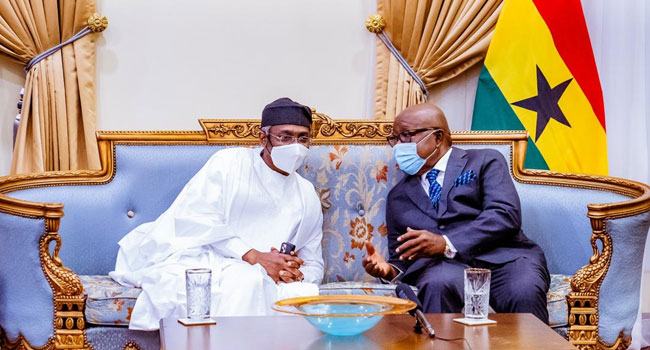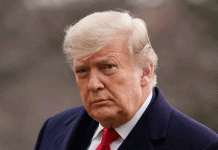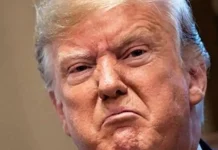The federal government says it is set to hold talks with Ghanian authorities in order to resolve trade dispute between the two countries.
In a press statement on Thursday, Ferdinand Nwonye, spokesperson for the ministry of foreign affairs, said senior Ghanaian government officials led by Allan Kyeremanteng, Ghana’s minister for trade and industry, arrived in Abuja to hold discussions with Nigerian officials.
Other members of the Ghanaian delegation were Kojo Nkrumah, Ghanaian minister of information, and Mohammed Tijani, the country’s deputy minister of foreign affairs and regional integration.
The Nigerian delegation to the meeting was led by Adeniyi Adebayo, minister of industry, trade and investment.
Lai Mohammed, minister of information and culture, and Zubairu Dada, minister of state for foreign affairs, were also present at the meeting.
“The delegations of both countries had a successful bilateral engagement on improving Nigeria-Ghana relations,” Nwonye said.
In the past weeks, both countries have been at loggerheads over the “ill treatment” of Nigerians in Ghana.
In June, a part of the Nigerian mission building in Ghana was demolished. Some Nigerian traders in Ghana also accused the Ghanaian government of closing their shops over non-registration with the Ghana Investment Promotion Council (GIPC), which requires $1,000,000 minimum foreign equity.
Femi Gbajabiamila, speaker of the house of representatives, who is currently in Ghana to review the crisis, has also urged the Ghanaian government to review its law on GIPC registration.
Gbajabiamila called for an amicable settlement of trade disputes through arbitration and fair judicial processes.
“We would encourage you to revisit the component of the law that requires a capital base of $1,000,000,” he said.
“We are all Africans. We all have towns and villages, and we know only too well that majority of our traders across the continent are petty traders.
“The prospect of them being able to raise a capital base of $1,000,000 before they can trade in goods that may be worth less than $1,000, clearly is a major challenge.”
Source: The Cable












